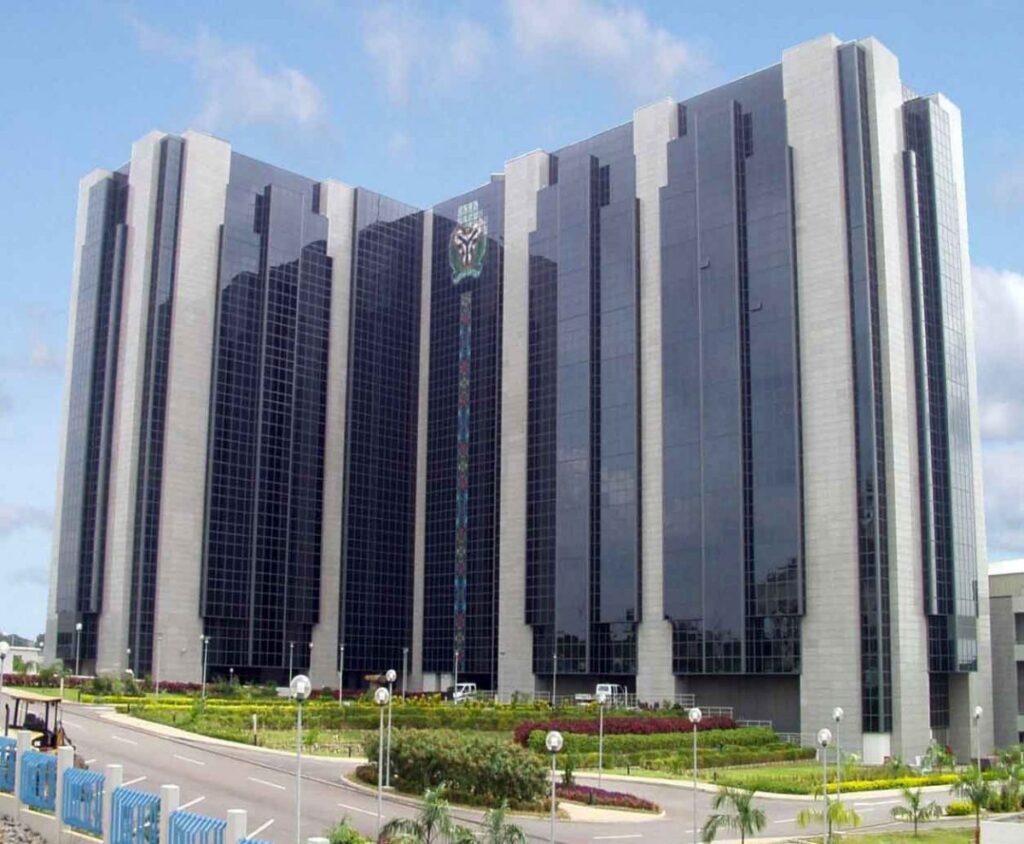- In 2021, the CBN warned banks and financial institutes that facilitating payment for cryptocurrency changes was prohibited.
- In the first three months of the year, Nigeria’s crypto ecosystem traded at least $185 million worth of Bitcoin.
- CBN has released guidelines establishing minimum standards and requirements for establishing banking relationships and opening accounts for VASPs in Nigeria.
Amid Africa’s crypto sphere, several names must appear to hog the spotlight. In the past two decades, Nigeria, Kenya, and South Africa have dominated the continent’s web3 franchise via their high crypto trading volume, the high adoption rate of decentralized applications, and the development of a protective crypto ecosystem within their regions.
These three have pioneered one of Africa’s greatest transformations, the age of digital assets. Within this trio, Nigeria’s crypto ecosystems have continued to break expectations despite the ongoing crypto winter. The region boasts of its positive crypto-friendly ecosystems, housing one of the highest numbers of crypto-based startups.
Nigeria houses Africa’s top crypto exchange, Flutterwave, alongside other web3-based unicorn startups. Unfortunately, despite the region having one of Africa’s highest crypto trading values, its governments expressed their discontentment concerning digital assets. They even went as far as banning the use of cryptocurrencies in banks.
This unwillingness to embrace cryptocurrency only fueled the enthusiasm of Nigerian crypt traders. In recent news, Nigeria’s crypto ecosystem CBN restrictions by trading over N77.75 billion ($185M) worth of Bitcoin. This unprecedented move soon forced the CBN to reevaluate its stance on Africa’s crypto sphere.
CBN restrictions on cryptocurrency
Nigeria has one of the highest crypto trading volumes in Africa’s crypto sphere. It was one of the first African nations to feature among the top five countries with the largest Bitcoin trading long before the concept experienced its first noticeable boom. Unfortunately, its success significantly hinged on the country’s failing fiat currency.
Africa has one of the most unstable economies worldwide. Although within its economic structure, a few fiat currencies have severe instability. Unfortunately, the Nair has severely lost its value in the past decade, forcing many to invest in alternative means of income. This cryptocurrency became the go-to alternative for most Nigerians, resulting in many abandoning their local currency.
Unfortunately, this soon presented a problem for its Central Bank. In a nutshell, when a nation’s citizens opt for an alternative currency, its native currency’s demand significantly reduces, eventually causing a steep decline in its value. The CBN did not take this lying down and promptly took measures to curb the extensive growth of Nigeia’s crypto ecosystem.

CBN placed several restrictions in 2017 and 2021 to control the nation’s growing crypto ecosystem to salvage its fiat currency.[Photo/Medium]
In 2021, the CBN warned banks and financial institutes that facilitating payment for cryptocurrency changes was prohibited. They took this directive further by ensuring all affected parties’ identities and closing all crypto-based accounts. This directive shook Nigeria’s crypto ecosystems as many took it as a direct attack on digital assets.
Also, Read Patricia Technology Crypto Hack: Nigerian Politician Wilfred Bonse in Police Custody.
Nigeria’s central bank chief, Godwin Emefiele, clarified that the CBN restrictions served to enforce order in the changing financial world. Unfortunately, many did not take this new directive lying down. The CBN had initially launched a directive in 2017 that required banks and financial institutions to ensure that their crypto exchange customers have effective ANTI-Money laundering and “anti-terrorism” financing controls in place. Unfortunately, these new CBN restrictions forged this directly and banned all crypto-related accounts.
This was a significant drawback for the region, but it did not deter Nigerian crypto traders from finding alternative means to access crypto services.
Nigeria’s crypto ecosystems shatter CBN restrictions.
Despite the CBN restrictions on cryptocurrency, Nigeria’s crypto ecosystem has continued to shatter the records. In 2023, during the intense crypto winter, Nigeria showcased why it has Africa’s largest crypto trading volume. In the first three months of the year, Nigeria’s crypto ecosystem traded at least $185 million worth of Bitcoin.
The figure represented a 5.71% increase from the N73.54 billion in 2021. Remember, during this period, Bitcoin’s value shot from $40,000 to an all-time low of $15,000, affecting the entire crypto franchise. Despite this significant loss in value, Nigeria’s crypto ecosystems still improved its trading volume with such measly figures.
According to Paxful, this trade accounted for 25.87% of the total $715 million worth of Bitcoin that was traded at the time. According to the global trade feature on the platform, this feat respected an 8.33% increase from the $660 million traded in 2021.
This feat completely shattered the main aims of the CBN restrictions. Since 2021, the P2P trading of crypto has significantly skyrocketed, placing Nigeria’s crypto ecosystem as the sixth leading nation worldwide in crypto adoption.
This feat became a catalyst forcing CBN to lift the restrictions on Nigerian banks facilitating crypto transactions. CBN had no choice but to officially recognize Nigeria’s true potential in Africa’s crypto sphere. The Central Bank of Nigeria released a statement stating, “The current trends globally have shown that there is a need to regulate the activities of virtual assets service providers (VASPs), which include cryptocurrencies and crypto assets.”
Also, Read Cryptocurrencies are eagerly adopted by Nigeria.
To commemorate this new change, CBN has released guidelines establishing minimum standards and requirements for establishing banking relationships and opening accounts for virtual asset service providers (VASPs) in Nigeria. In addition, it will ensure robust risk management practices within the banking industry concerning the activities of licensed VASPs.
Obinna Iwuno, the president of the Stakeholders in Blockchain Association of Nigeria (SiBAN), commented on this new guideline as the tuning point Nigeria’s crypto ecosystem required. He said, “We are ready for full adoption now, and the blockchain policy initiated by the government positions Nigeria as a trailblazer in the continent’s digital economy landscape if fully implemented.”
- SEO Powered Content & PR Distribution. Get Amplified Today.
- PlatoData.Network Vertical Generative Ai. Empower Yourself. Access Here.
- PlatoAiStream. Web3 Intelligence. Knowledge Amplified. Access Here.
- PlatoESG. Carbon, CleanTech, Energy, Environment, Solar, Waste Management. Access Here.
- PlatoHealth. Biotech and Clinical Trials Intelligence. Access Here.
- Source: https://web3africa.news/2024/01/02/news/nigerias-crypto-ecosystem-cbn/
- :has
- :is
- :not
- 000
- 2017
- 2021
- 2023
- 25
- 33
- 54
- 7
- 75
- 8
- a
- access
- According
- accounted
- Accounts
- activities
- addition
- adopted
- Adoption
- affected
- affecting
- africa
- African
- age
- aims
- All
- all-time low
- alongside
- alternative
- Although
- among
- an
- and
- anti-money laundering
- appear
- applications
- ARE
- AS
- asset
- Assets
- Association
- At
- attack
- Bank
- Banking
- banking industry
- Banks
- banned
- became
- before
- Billion
- Bitcoin
- bitcoin trading
- blockchain
- boasts
- boom
- Break
- but
- by
- Catalyst
- causing
- cbn
- central
- Central Bank
- Central Bank of Nigeria
- chainalysis
- challenges
- change
- Changes
- changing
- chief
- choice
- Citizens
- clarified
- closing
- commented
- completely
- concept
- concerning
- continued
- control
- controls
- countries
- country’s
- crypt
- crypto
- Crypto adoption
- Crypto ecosystem
- Crypto Ecosystems
- crypto exchange
- Crypto Hack
- crypto services
- crypto traders
- crypto trading
- crypto trading volume
- crypto trading volumes
- crypto transactions
- Crypto Winter
- crypto-assets
- crypto-based
- crypto-friendly
- cryptocurrencies
- cryptocurrency
- curb
- currencies
- Currency
- Current
- Customers
- decade
- decades
- decentralized
- Decentralized Applications
- Decline
- Demand
- Despite
- Development
- DID
- digital
- Digital Assets
- Digital economy
- direct
- directly
- dominated
- down
- during
- eagerly
- Economic
- economies
- economy
- ecosystem
- Ecosystems
- Effective
- embrace
- enforce
- ensure
- ensuring
- enthusiasm
- Entire
- establishing
- Even
- eventually
- exchange
- expectations
- experienced
- expressed
- extensive
- facilitating
- failing
- far
- feat
- Feature
- few
- Fiat
- fiat currencies
- Fiat currency
- Figure
- Figures
- financial
- Financial institutions
- financing
- finding
- First
- five
- For
- forced
- forcing
- forged
- franchise
- from
- fueled
- full
- fully
- further
- Global
- global trade
- Globally
- Godwin Emefiele
- Government
- Governments
- greatest
- Growing
- Growth
- guidelines
- hack
- had
- Have
- having
- he
- High
- highest
- houses
- housing
- How
- HTTPS
- identities
- if
- improved
- in
- include
- Income
- Increase
- industry
- initially
- initiated
- instability
- institutions
- Invest
- IT
- ITS
- jpg
- kenya
- landscape
- largest
- Largest Crypto
- launched
- Laundering
- leading
- least
- Licensed
- local
- Long
- loss
- lost
- Low
- Main
- management
- many
- max-width
- means
- measures
- million
- minimum
- months
- most
- move
- must
- names
- nation
- Nations
- native
- Need
- New
- news
- Nigeria
- Nigerian
- no
- now
- numbers
- Nutshell
- of
- Officially
- on
- ONE
- ongoing
- only
- opening
- order
- Other
- over
- p2p
- past
- Paxful
- payment
- period
- pioneered
- Place
- placing
- platform
- plato
- Plato Data Intelligence
- PlatoData
- Point
- Police
- policy
- politician
- positions
- positive
- potential
- practices
- presented
- president
- Problem
- prohibited
- Protective
- providers
- Rate
- ready
- recent
- recognize
- records
- reduces
- region
- regions
- Regulate
- Relationships
- released
- remember
- represented
- required
- Requirements
- resilient
- respected
- restrictions
- resulting
- Revolution
- Risk
- risk management
- robust
- s
- Said
- served
- service
- service providers
- Services
- several
- severe
- severely
- shook
- shot
- showcased
- shown
- significant
- significantly
- since
- sixth
- soon
- South
- South Africa
- Spotlight
- stakeholders
- stance
- standards
- Startups
- Statement
- stating
- Still
- structure
- success
- such
- Take
- Technology
- that
- The
- their
- There.
- These
- they
- this
- three
- time
- to
- took
- top
- Total
- trade
- traded
- Traders
- Trading
- trading volume
- trading volumes
- trailblazer
- Transactions
- transformations
- Trends
- trio
- true
- tuning
- two
- unfortunately
- unicorn
- unprecedented
- use
- value
- Values
- vasps
- via
- Virtual
- virtual assets
- volume
- volumes
- warned
- was
- Web3
- went
- when
- which
- why
- will
- Winter
- with
- within
- world
- worldwide
- worth
- year
- zephyrnet













